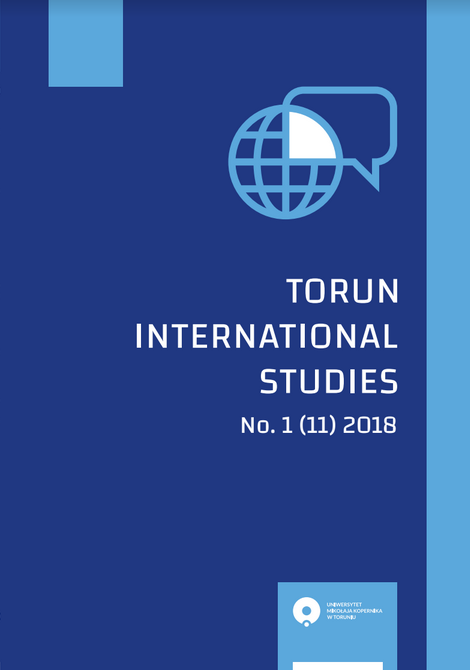EFFICIENT USE OF COMMON RESOURCES IN CONDITIONS OF SUSTAINABLE DEVELOPMENT
DOI:
https://doi.org/10.12775/TIS.2018.007Keywords
commonly used resources, community, decentralization, local governance, transformation, sustainable developmentAbstract
Many of the challenges facing humankind, such as climate change, water scarcity, inequality, and hunger, can be resolved not only at a global level by promoting sustainable development but, first of all, at a local level. Local communities in many countries have been seeking to improve sustainability. They are the policy makers and catalysts of change that unify the global goals with their own local ones. In light of the theoretical background, this article uses the example of Ukraine to extend the analysis of the effective management of common resources proposed by Elinor Ostrom by introducing obstacles and opportunities for local communities working toward sustainable development. Considering the experience of European states, the foundation of the transformation of the conditions of sustainable development is a citizen as an individual, guided by his or her own “taste of life” in accordance with the state- and community-guaranteed right to choose one’s own place in life. Under the relevant conditions, it is expedient to look for effective tools that would exert influence on central and local governments, and the possibilities of transforming the entire system of public administration by focusing on the role of the community and its opportunities for the effective use of shared resources. The duplication of the process of consolidation without development of a social state only destroys the remnants of local self-governance and, as a consequence, all other branches of power in general. The aim of paper is to use the example of Ukraine to extend the analysis of effective management of commons by introducing obstacles and opportunities that local communities face on their path toward sustainable development.References
Bednarek, M., & Dmochowska-Dudek, K. (2016). NIMBY syndrome in rural areas of Poland: determinants and specificity of conflicts on the location of unwanted investments. Warszawa: IGiPZ PAN.
CEMR. (2017). Local and Regional Government in Europe. Structures and Competences, Austrian Association of Municipalities and Australian Association of Cities and Towns.
Civil Code of Ukraine. (2003). Verkhovna Rada of Ukraine no 40-44, http://zakon.rada.gov.ua/laws/show/435-15.
Constitution of Ukraine. (1996). Verkhovna Rada of Ukraine, no 30, http://zakon2.rada.gov.ua/laws/show/254%D0%BA/96-%D0%B2%D1%80.
Council of Europe. (2013). Local and Regional democracy in Denmark. The Congress of Local and Regional Authorities, 25th Session. Strasbourg.
Evans, B., Joas, M., Sundback, S., & Theobald, K. (2005). Governing sustainable cities, Earthscan, London, Sterling, VA.
Evans, B., & Theobald, K. (2001). Local authorities’ self assessment of local agenda 21 (LASALA): accelerating local sustainability – evaluating european local agenda 21 processes (Rep. No. vol 1), Freiburg: ICLEI.
Hardin, G. (1968). The Tragedy of the Commons. Washington: Science.
Hoppe, T., & Coenen, F. (2011). Creating an analytical framework for local sustainability performance: a Dutch Case Study, Local Environment, 16 (2011), 229-250. DOI: 10.1080/13549839.2011.565466.
Hurnyak, I., & Kordonska, A. (2018). “Taste of Life” as a Mechanism of Corruption Overcoming. Comparative Economic Research. Central and Eastern Europe, 21(2), 69-80. DOI: 10.2478/cer-2018-0012.
Kusakabe E. (2013). Advancing sustainable development at the local level: The case of machizukuri in Japanese cities, Progress in Planning, vol. 80, 1-65. https://doi.org/10.1016/j.progress.2012.06.001.
Lafferty, W. (2004). Introduction: form and function in governance for sustainable development, In W. Lafferty (Ed.), Governance for sustainable development (pp. 1-31), Edward Elgar: Cheltenham. DOI: 10.4337/9781845421700.00009.
Olsson, J. (2009). Sustainable development from below: institutionalising a global idea-complex. Local Environment, 14 (2009), 127-138. DOI: 10.1080/13549830802521436.
Ostrom, E. (1990). Governing the Commons: The Evolution of Institutions for Collective Action. Cambridge: Cambridge University Press.
Sedmihradsk´a, L. (2012). Property tax in the Czech Republic and Slovakia since 1993. Prague: University of Economics.
The Sustainable Development Goals: What Local Governments Need to Know, United Cities and Local Governments, https://www.uclg.org/sites/default/files/the_sdgs_what_localgov_need_to_know_0.pdf.
WCED. (1987). Our common future, New York: United Nations.
Downloads
Published
How to Cite
Issue
Section
Stats
Number of views and downloads: 265
Number of citations: 0



